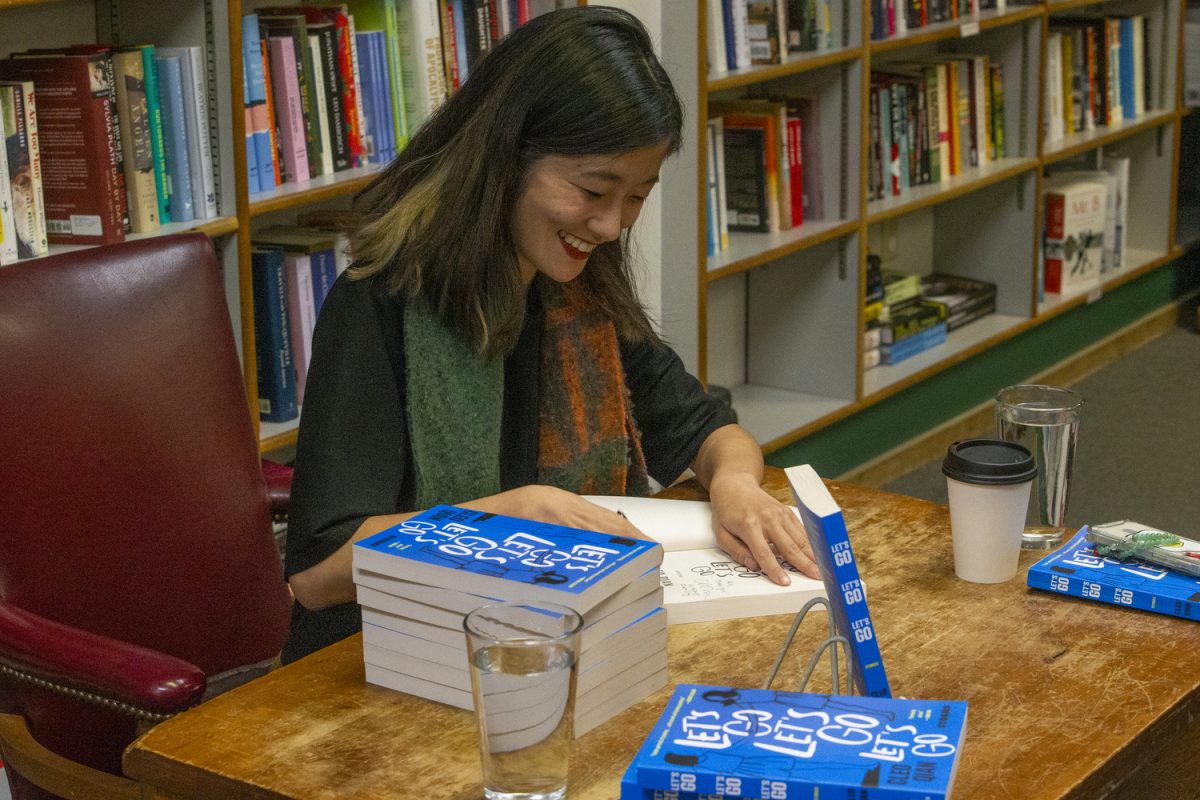Cleo Qian is a poet and fiction writer from California. She received her creative writing MFA from NYU after studying literature at the University of Cambridge-King Pembroke Programme. Her short story “Chicken. Film. Youth.” was a winner in the 2022 Zoetrope Short Fiction Competition and can also be found in her debut novel “LET’S GO LET’S GO LET’S GO.”
Her poems include “Bad Season” and “Strawberries”, the second of which was published in the Florida Review. She has had a nomination for the Pushcart Prize and was longlisted for the DISQUIET prize. Her works have been in over twenty outlets, and she is supported by the Sundress Academy for the Arts. She currently lives in both New York and Chicago.
The Daily Iowan: In your book, “LET’S GO LET’S GO LET’S GO,” why did you choose to write about different perspectives?
Qian: The book is a collection of eleven short stories, most of which have different protagonists. But initially, it was just eleven short stories that were all standalone but were all thematically linked, which is why I ended up grouping them into a short story collection. Once my editor and I started editing the book, she suggested that, for readers who have read the whole collection straight through, it might be nice to have a character arc they could follow. So we decided to link some characters’ stories together.
What is the meaning behind the title of your book?
I think that a lot of the stories are about escapism. Actually, the book is dedicated to the ones who want to escape. There’s a backstory to the [chapter of the same title]: The story was inspired by an art exhibit I went to with the Japanese radical artist Yutaka Mazazawa who was active in the 1960s.
There, either he or his cohort had this philosophy of antimaterialism and this concept that everything in the world was going to vanish. A lot of the art they made was very temporary, or made to only exist with this gesture of nihilism. In that exhibit, there was this one gallery with a big pink banner, and [written] on it in Japanese calligraphy [were the words]: “Humankind, let’s vanish, let’s go let’s go let’s go.” I was really struck by that.
What was your favorite aspect of writing that namesake chapter?
It was first written as a partial screenplay that I was working on and, if you look at the very top of the story, there is a director’s note I left in the book that read: “There will be no music playing throughout.” Because it started as a screenplay, there is a lot of visual language in it and I think the stories have the same amount of influence [in the sense that] you can see it moving from different scenes and from some kind of camera angle. I don’t know if readers will necessarily see that explicitly, but I think that the underlying structure does kind of move from the camera’s eye.
What is your favorite genre to write about?
I primarily write fiction, and poetry is something that I thought I [felt] leads into my fiction a lot. I think a lot of the inspiration I get from poetry, in terms of, like, formal experimentation, bleeds into my fiction. At the same time, when I’m writing poetry I often end up taking a narrative tone of voice, so I think that poetry and fiction are kind of like the main genres I work in.
What was it like to have an essay of yours published in “The Guardian?”
It was an essay I wrote about my grandparents passing away in China during the COVID-19 lockdown in the U.S. My family and I were only able to attend their funerals virtually via WeChat. It was a very strange time for everyone and it led to a lot of reflection on my part about my disconnection from China and my grandparents, as well as this technological innovation that we used to go to the funerals.
That essay was very personal. I usually don’t like to write personal nonfiction that much, but I wrote to, in a way, pay respects to my grandparents, who had a very remarkable life story that I wanted to share with people. That essay has reached a lot of diasporic readers. To this day, it is still something that I get emails about. Sometimes I’ll do an event or a reading promoting my short story collection, and a reader will tell me that they found my work through that “Guardian” essay, so it has been quite special.



